第42章 LETTER 6(5)
But he who has not studied and acquired a thorough knowledge of them both,from these periods down to the present time,in all the variety of events by which they have been affected,will be very unfit to judge or take care of either.Just as little are we concerned to know,in any nice detail,what the conduct of our princes,relatively to our neighbors on the continent,was before this period,and at a time when the partition of power and a multitude of other circumstances rendered the whole political system of Europe so vastly different from that which has existed since.But he who has not traced this conduct from the period we fix,down to the present age,wants a principal part of the knowledge that every English minister of state should have.Ignorance in the respects here spoken of is the less pardonable,because we have more,and more authentic,means of information concerning this,than concerning any other period.Anecdotes enow to glut the curiosity of some persons,and to silence all the captious cavils of others,will never be furnished by any portion of history;nor indeed can they according to the nature and course of human affairs:but he who is content to read and observe,like a senator and a statesman,will find in our own and in foreign historians as much information as he wants,concerning the affairs of our island,her fortune at home and her conduct abroad,from the fifteenth century to the eighteenth.I refer to foreign historians as well as to our own,for this series of our own history;not only because it is reasonable to see in what manner the historians of other countries have related the transactions wherein we have been concerned,and what judgment they have made of our conduct,domestic and foreign,but for another reason likewise.Our nation has furnished as ample and as important matter,good and bad,for history,as any nation under the sun:and yet we must yield the palm in writing history most certainly to the Italians and to the French,and,I fear,even to the Germans.The only two pieces of history we have,in any respect to be compared with the ancient,are,the reign of Henry the Seventh by my lord Bacon,and the history of our civil wars in the last century by your noble ancestor my lord chancellor Clarendon.But we have no general history to be compared with some of other countries:neither have we,which I lament much more,particular histories,except the two Ihave mentioned,nor writers of memorials,nor collectors of monuments and anecdotes,to vie in number or in merit with those that foreign nations can boast;from Commines,Guicciardin,Du Bellay,Paola,Davila,Thuanus,and a multitude of others,down through the whole period that I propose to your lordship.But although this be true,to our shame;yet it is true likewise that we want no necessary means of information.They lie open to our industry and our discernment.Foreign writers are for the most part scarce worth reading when they speak of our domestic affairs;nor are our English writers for the most part of greater value when they speak of foreign affairs.In this mutual defect,the writers of other countries are,I think,more excusable than ours:for the nature of our government,the political principles in which we are bred,our distinct interests as islanders,and the complicated various interests and humors of our parties,all these are so peculiar to ourselves,and so different from the notions,manners,and habits of other nations,that it is not wonderful they should be puzzled,or should fall into error,when they undertake to give relations of events that result from all these,or to pass any judgment upon them.But as these historians are mutually defective,so they mutually supply each other's defects.We must compare them therefore,make use of our discernment,and draw our conclusions from both.If we proceed in this manner,we have an ample fund of history in our power,from whence to collect sufficient authentic information;and we must proceed in this manner,even with our own historians of different religions,sects,and parties,or run the risk of being misled by domestic ignorance and prejudice in this case,as well as by foreign ignorance and prejudice in the other.